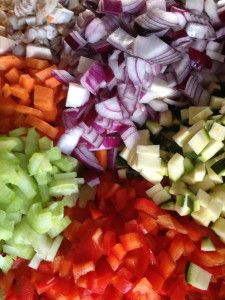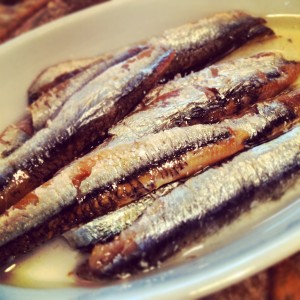There are many aspects to a healthy body and lifestyle but the fuel we give our bodies can often feel like a far too complex subject for us to seriously tackle. However, I believe that the key to glorious healthy eating is having a basic knowledge of how your body actually works and processes food. Armed with that knowledge we can begin to give our bodies the things it really needs to keep us feeling lovely and vibrant.
Our brain cells need twice the energy that the other cells in our body need. These 100 billion ‘neurons’ in our brain never stop working, creating, connecting and rebuilding. So, it is vital to give them all the things they need to keep us a fabulous as we quite clearly are…
Essentially, fats build your brain, proteins then enable it to do its work, while carbohydrates fuel it and micronutrients defend it…so eating a balanced, varied diet is what you aim for to keep your brain (and body) happy.
Fats: At least two thirds of your brain is made of fat. The brain usesall fats (yes, even saturated) to build and regenerate itself and keep everything in the best possible working order. Keeping the oxygen, glucose (both are brain ‘fuel’) and antioxidants needed for optimum function going in and the metabolic waste going out. A key fat is the EFA (Essential Fatty Acid) Omega 3 which, like its more abundant sister Omega 6, cannot be made in the body and must be obtained through the diet. The ratio between Omega 3 and 6 is key. Most of us consume far too much Omega 6 and too little 3. To redress this try to avoid processed oils/fats (e.g. vegetable oil, margarine) and go for organic, unrefined oils/fats (e.g. olive oil, butter).
Proteins: When protein is digested, it is broken down into its constituent amino acids, which are then rebuilt into the different types of proteins needed to function e.g. neurotransmitters, enzymes and hormones. Eight of these amino acids are called ‘essential’, as your body cannot produce them and so must obtain them from your diet. Food sources of all eight essential amino acids are called complete proteins and include meat, poultry and fish, eggs and diary. Incomplete proteins, containing only some of the eight, include grains, nuts, seeds and beans.
Of course, meat and animal products, like eggs and milk, are really only as good as the feed the animal itself was given…so try to go for the best reared and best fed that you possibly can.
Carbohydrates: When carbohydrates are digested, they are broken down mostly into glucose, a simple form of sugar that provides energy to the body and brain alike. Glucose is the brain‘s primary energy source but brain cells cannot store it, therefore, require a steady supply of glucose be delivered to it through the bloodstream.Notice glucose, not sugar. Refined or added su
Slow down the journey of carbs through your body by combining with fats and protein. E.g. eggs on whole grain toast will keep you fuller for longer and give your brain a nice steady supply of energy.
Micronutrients: The brain relies on antioxidants to protect it from damage. Oxygen balance is key to brain health, as it can be as harmful to the brain as it is vital. Certain forms of oxygen, called free radicals, can damage brain cells but antioxidants, as found abundantly in fruits and vegetables, neutralize these before they can cause any damage. Vitamins C, D, E, K and the B complex as well as the minerals iron, copper, magnesium, manganese, zinc, iodine and lithium are all sited as necessary for different brain functions.
Be aware that some vitamins (especially notable – Vitamin C) are destroyed by exposure to oxygen or heat (processing, pasturisat
Some foods with mega brain bounty are:
Oily fish – well, you’ve heard this countless times I’m sure. Fish is brain food! The key is in the EFA Omega 3. It’s the DHA acronym you see bandied about everywhere that counts and it’s really deliciously available in oily fish. Okay, I know there’ll be wrinkling of noses here as we are a society of cod and haddock eaters but think of the near depletion of these less healthy fish and switch to their healthier, easily available (tinned) and much cheaper brethren.
Nuts – walnuts and almonds for instance are a perfect brain snack. A pe
Strawberries and blueberries – awesome sources of those power antioxidants your brain needs to keep any tricksy free radicals harmless. Vitamin C and E are especially useful to the brain.
Greek yoghurt – the full fat version (really it’s only a teeny bit fattier than that skimmed nonsense and the bit that gets skimmed is actually the healthy bit…!!) It also has tyrosine in which gives you a mental boost of alertness.
Beans – packed with B vitamins and fibre these slow release (complex) carbohydrates are a boon to mind and body. Store cupboard stalwarts and cheap too!
Eggs – (free range and organic) contain choline which is a brain nutrient extraordinaire.
Flax seeds – tricky to incorporate I’ll admit but they come in various versions and a few sprinkled here and there will never be noticed by your emotional eating self but will be cherished and adored by your brain!
Tempeh – a soya protein that keeps the blood sugar stable and is super healthy all round. It’s heaps cheaper than meat and to get the same benefits you’d have to buy organic, grass reared beef…But,okay, it’s not that easy to find, as in, it won’t be in a local supermarket often but any independent health food shop or Chinese style Asian market will have it…but try to get a really good quality one that has been as organically produced as possible.
Cold pressed oils – olive, avocado, flax and walnut – I also use these on my body instead of moisturiser but that’s another story…
Herbs – sage and rosemary are considered to be the most powerful brain tonics while basil, nutmeg and coriander are linked with brain mood. Chilli and ginger also affect the brain as they open up those tiny blood vessels and get the blood flowing (also assisting the circulatory and digestive systems – all good)! You sweat from the ‘heat’ and your brain is lavished in oxygen and iron rich blood. Bliss.
Treat your brain to lots of laughter and moderate exercise. Turn off that TV and ask it to learn a new skill, think positive, solve puzzles, draw and listen to music or read…and get some proper sleep…not necessarily in that order or all at once but start as you mean to go on!

